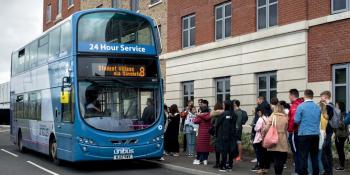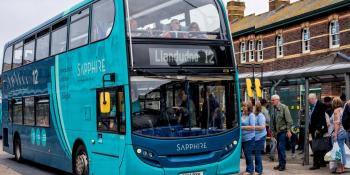Politicians and public bodies are setting deadlines to eliminate diesel buses without a clear understanding of the challenges of using alternative technology in rural areas. Clues about their limitations are to be found in the results of trials in north Wales, as RHODRI CLARK reports
There the Department was some bemusement for Transport when awarded £500,000 to Denbighshire County Council in 2017 for four electric buses, to be used on services in the middle of the county.
The area is rural, and the focus then across Britain was on meeting obligations to reduce air pollution in urban areas. Carbon emissions, meanwhile, received no mention in the DfT’s announcement of that year’s award of £11million for ‘greener’ buses.
In 2019, however, climate change and carbon emissions raced up the political agenda, various elected bodies declared a ‘climate change emergency’ and there were moves to accelerate the phasing out of diesel and petrol vehicles.
The Welsh government’s climate change plan sets 2028 as the date by which all buses and taxis should have zero tailpipe emissions. The deadline is well within the working lifetimes of diesel buses bought recently.
In November, Welsh transport minister Ken Skates co…




